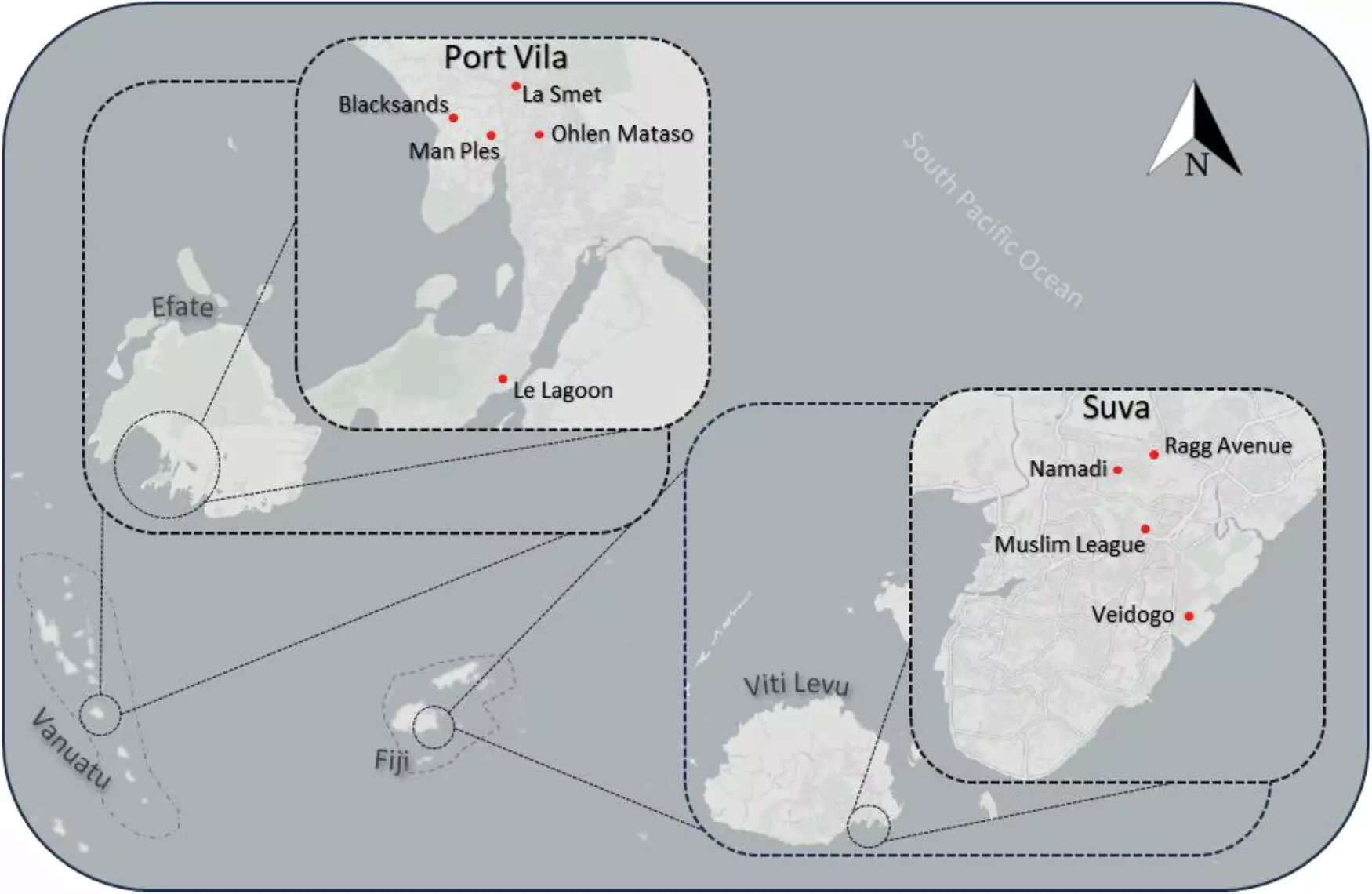The Pacific Islands are often idealized for their breathtaking landscapes and idyllic environments. However, beyond this facade of paradise lies a pressing public health crisis that severely impacts the daily lives of many residents. Approximately half a million individuals in various Pacific nations find themselves residing in informal urban settlements, areas characterized by inadequate sanitary facilities and a lack of basic hygiene services. This situation is particularly dire for vulnerable groups, including women, children, the elderly, and individuals with disabilities, who face heightened risks as a result of inadequate sanitation and its cascading effects on health, education, and overall well-being.
Recent research published in the journal *npj Clean Water* delves into the sanitation conditions within informal urban settlements in Fiji and Vanuatu. Collaborating with the University of the South Pacific, researchers undertook a rigorous survey of 393 households in nine different settlements across the capitals of these nations, Suva and Port Vila. These informal settlements often emerge as a result of populations seeking refuge in unregulated areas due to a dire lack of affordable housing, leaving residents without access to essential services like sewer systems and reliable waste management.
Despite the availability of piped water to many of these households, the study revealed that a staggering majority still depend on perilous sanitation options to handle human waste. Ranging from 56% to a troubling 100% in some areas, residents often rely on rudimentary solutions such as dry pits or cesspits that lack plumbing and running water for proper waste disposal. With the unsanitary disposal of human waste occurring on-site, the repercussions extend beyond mere inconvenience as untreated waste permeates settlements, creating public health hazards.
The impact of climate events cannot be overstated in these regions, particularly as storms and heavy rain can devastate existing sanitation infrastructure. The research found that one-third of households could lose access to functional toilets during severe weather, exposing residents to heightened risks of disease transmission. The fragility of these dry pit systems is alarming – facing four to eight times higher odds of damage compared to more reliable water-based sanitation systems. In instances of overflowing due to extreme weather, the fallout not only compromises waste management but also risks contaminating local water supplies, exacerbating public health crises.
The natural vulnerabilities of Melanesian nations enhance the critical need for resilient sanitation infrastructures. Health issues inherently tied to poor sanitation, including infections from diarrhea and communicable diseases like trachoma, continue to emerge. Data from the World Health Organization and UNICEF paints a stark contrast, revealing that while only a minimal percentage of urban populations utilize unsafe sanitation in formal settings, the reality for those in informal settlements is far bleaker.
A singular focus on the provision of toilets is insufficient to resolve this sanitation crisis. A multidimensional strategy must be employed to address the complexities of sanitation management in these communities. Establishing a comprehensive service chain that ensures waste is reliably collected, treated, and disposed of safely is critical. Such systems should be geared towards resilience against future disasters, which would involve enhancing local expertise and fostering community engagement in sanitation management practices.
The transition from informal settlements to structured approaches requires navigation through the intricacies of land ownership and the current lack of infrastructure. These challenges impose significant barriers for service providers and require innovative solutions. For those living in informal settlements, introducing sustainable sanitation systems is not just a health imperative but also a necessary step towards restoring dignity and stability in communities threatened by climate change and urban heat.
The world is watching as the Pacific Islands address these sanitation challenges. The sixth sustainable development goal underscores the necessity of ensuring universal access to clean water and sanitation. The social and economic implications of resolving this sanitation crisis are immense; this is not merely about hygiene but about safeguarding health and enhancing the quality of life for some of the most vulnerable communities.
To unlock the potential of these islands against the backdrop of environmental unpredictability, a collective effort is required—one that advocates for improved monitoring, comprehensive sanitation solutions, and community empowerment. By prioritizing these initiatives, Pacific nations can emerge not only as serene travel destinations but as leaders in public health and resilient community planning.


Leave a Reply